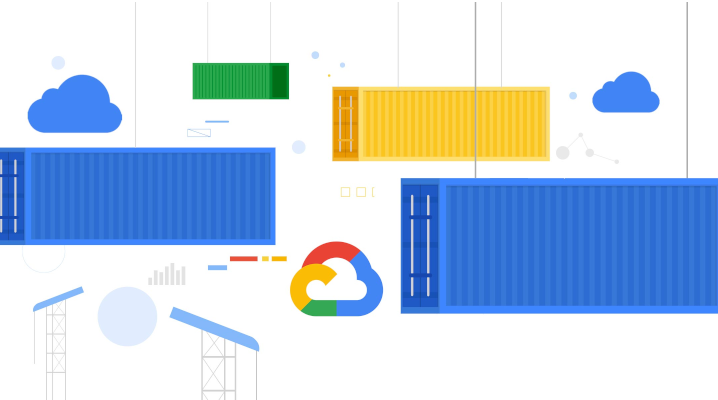 CLOUD
CLOUD
 CLOUD
CLOUD
 CLOUD
CLOUD
Continuing its quest to establish a bigger presence in the Microsoft Corp. ecosystem, Google LLC today introduced the ability for enterprises to run Windows Server containers on Google Kubernetes Engine.
As is the case with Linux workloads, more and more companies are delivering their Windows Server applications in containers to streamline operations.
But the process has been going somewhat more slowly since Microsoft’s operating system was made compatible with Kubernetes only last year. The open-source Kubernetes framework is the go-to tool for managing container clusters in the enterprise so they can run on multiple systems.
As of today, companies can run Windows Server containers on Google Kubernetes Engine side-by-side with their Linux workloads. The update management and other automation features the service provides are supported out of the box.
Additionally, Google has added on a number of Windows-specific features to lure customers. One of them is an integration with Microsoft’s Active Directory platform that facilitates the creation of so-called Group Managed Service Accounts. These are administration accounts for the engineers who maintain a Kubernetes deployment that include additional security protections, including automatic password rotation at set time intervals.
Google has adapted Google Kubernetes Engine to accommodate Microsoft’s licensing model for Windows Server. When setting up a deployment, companies can choose between getting new versions of the operating system twice a year, or every two or three years but with longer support for each version.
Google is actively working to make its cloud platform a more attractive environment for running Microsoft workloads. In the past year, the search rolled out new services that provide managed versions of Active Directory and Microsoft’s SQL Server relational database. It also offers companies the option to bring over their existing Windows Server licenses.
Kubernetes is a direct contributor to the increased collaboration between Google and Microsoft, according to Gabe Monroy, a project director with Microsoft Azure. In particular, speaking to SiliconANGLE last year, he credited the companies’ joint work on the framework’s open-source code base as a catalyst.
“That upstream work puts folks in contact with people from all different companies,” Monroy said during the interview, which took place at KubeCon + CNF EU and also saw the participation of Google engineer Tim Hockin, one of Kubernetes’ original co-creators. “Google [and] Microsoft [are] working closely together on countless initiatives and the same is true for the entire community.”
Support our mission to keep content open and free by engaging with theCUBE community. Join theCUBE’s Alumni Trust Network, where technology leaders connect, share intelligence and create opportunities.
Founded by tech visionaries John Furrier and Dave Vellante, SiliconANGLE Media has built a dynamic ecosystem of industry-leading digital media brands that reach 15+ million elite tech professionals. Our new proprietary theCUBE AI Video Cloud is breaking ground in audience interaction, leveraging theCUBEai.com neural network to help technology companies make data-driven decisions and stay at the forefront of industry conversations.